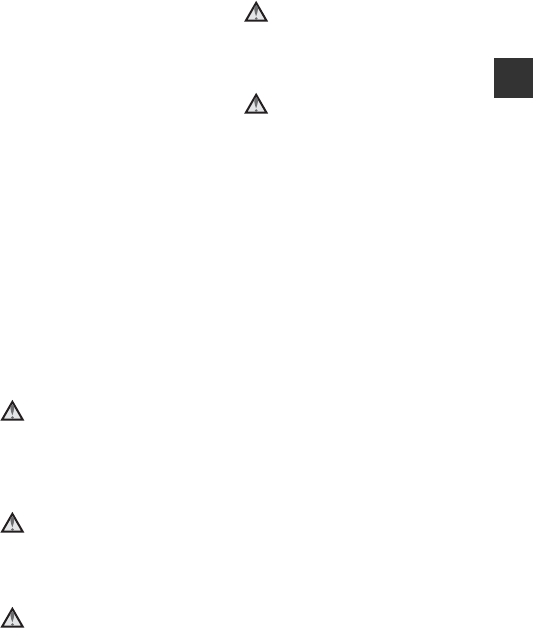
ix
Introduction
• Do not damage, modify, forcibly
tug or bend the USB cable, place it
under heavy objects, or expose it
to heat or flames. Should the
insulation be damaged and the
wires become exposed, take it to a
Nikon-authorized service
representative for inspection.
Failure to observe these
precautions could result in fire or
electric shock.
• Do not handle the plug or
charging AC adapter with wet
hands. Failure to observe this
precaution could result in electric
shock.
• Do not use with travel converters
or adapters designed to convert
from one voltage to another or
with DC-to-AC inverters. Failure to
observe this precaution could
damage the product or cause
overheating or fire.
Use appropriate cables
When connecting cables to the input
and output jacks, use only the cables
provided or sold by Nikon for the
purpose, to maintain compliance with
product regulations.
Handle moving parts with
care
Be careful that your fingers or other
objects are not pinched by the lens
cover or other moving parts.
Using the flash close to your
subject's eyes could cause
temporary visual
impairment
The flash should be no less than 1 m
(3 ft 4 in.) from the subject.
Particular care should be observed
when photographing infants.
Do not operate the flash with
the flash window touching a
person or object
Failure to observe this precaution
could result in burns or fire.
Turn the power off when
using inside an airplane or
the hospital
Turn the power off while inside the
airplane during take off or landing.
Before boarding an airplane, set the
record location data function to OFF.
End log recording. Do not use
wireless network functions while in
the air. Follow the instructions of the
hospital when using while in a
hospital. The electromagnetic waves
emitted by this camera may disrupt
the electronic systems of the airplane
or the instruments of the hospital. If
you are using an Eye-Fi card, remove
it from the camera before boarding
an aircraft or entering a hospital.


















